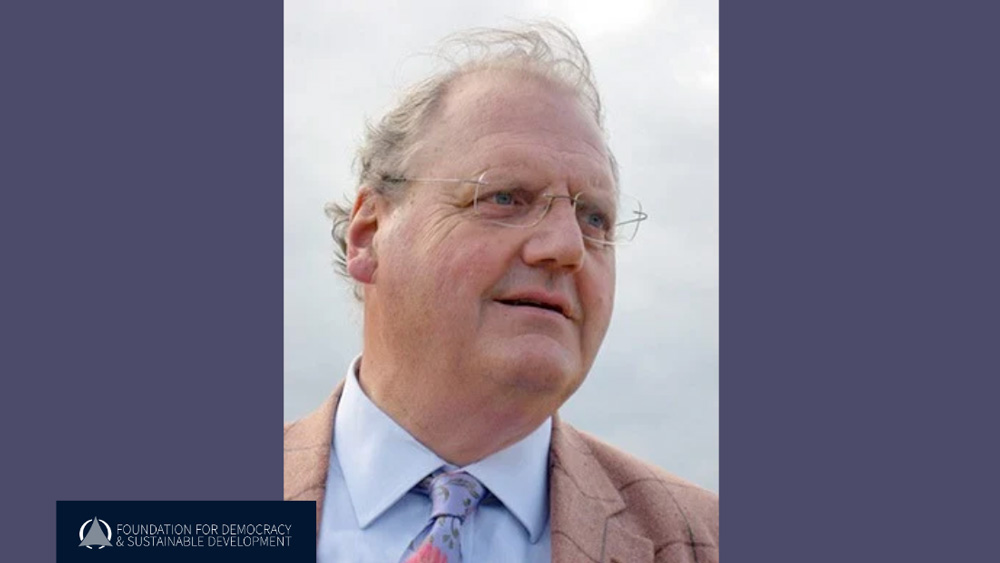
by kultur.work | Feb 3, 2025 | News and Comment
We were very sorry to hear of the death of Malcolm Aickin in December 2024, a former long-serving and dedicated trustee of FDSD. Malcolm was one of the founders of the Environment Foundation in 1982 and joined us in transforming that into FDSD before retiring as a...

by kultur.work | Mar 1, 2024 | News and Comment
Header image © istock/rbouwman

by Derek Walker | Mar 1, 2024 | Blog, News and Comment
Wales’ Well-being of Future Generations Act is about improving lives now, next year, in 25, 50, 100 years into the future—and beyond. By Derek Walker, Future Generations Commissioner, Wales Imagine the youngest person you know. Now picture the quality of...

by kultur.work | Nov 28, 2023 | News and Comment

by kultur.work | May 21, 2023 | Blog, News and Comment
The following is an extract from ‘Can Democracy safeguard the Future’—By Graham Smith, Polity Press, 2021. Participatory democracy would appear to be a counterintuitive approach to long-term governance. The short-sightedness of the public is widely viewed...

by kultur.work | Dec 13, 2022 | News and Comment
FDSD update: Quiet but busy… FDSD has been quiet during COVID, but not inactive. We have been rethinking how we can best contribute to the profound challenges facing democracies today. We are planning an event in 2023 to bring together the diverse and fragmented...

by kultur.work | Dec 12, 2022 | Blog, News and Comment
By Hanne Bastiaensen and max stearns, Democratic Society Who we are Hanne Bastiaensen is trained as a sociologist and has worked in the field of democratic innovation for over a decade, mainly in designing and implementing projects and processes. More recently she is...

by kultur.work | Dec 12, 2022 | Blog, News and Comment
By Lukas Kübler, Giulia Molinengo, and Monika Arzberger Lukas Kübler, Giulia Molinengo and Monika Arzberger work at the Collaborative Governance Lab (Co:Lab), a public sector innovation lab of the Federal Office for the Safety of Nuclear Waste Management (BASE) in...

by kultur.work | Dec 12, 2022 | Blog, News and Comment
Jake Ainscough (pictured on the left) is a Senior Research Associate on the Climate Citizens project at Lancaster University. Climate Citizens is a research project exploring options for opening up climate policy making to the public. He interviewed Chris Stark...

by kultur.work | Nov 21, 2022 | News and Comment
The Brussels-Capital Region has announced that it will launch a permanent Citizens’ Assembly on Climate in 2023. Each year, the assembly will bring together 100 citizens to select topics, deliberate and come to recommendations. The citizens will also have a role in...

by kultur.work | Oct 17, 2022 | News and Comment
On 20 September 2022, FDSD partnered with the Institute for Government and the Bennett Institute, University of Cambridge to hold a workshop at IfG on Building a more effective and participatory government—to improve policy-making and delivery. Participants from...

by kultur.work | Oct 11, 2022 | News and Comment
As part of their ongoing research on Present Democracy for Future Generations, the Laboratory of Ethics and Political Philosophy in the Nova University, Lisbon’s Institute of Philosophy, Ifilnova, held a conference on 19-20 September 2022 on Constitutionalizing the...

by Ariella Shalev | Apr 13, 2022 | News and Comment
FDSD believes that democracy needs to adapt in order to meet the challenges of sustainable development, but equally that democracy itself is a better away of achieving sustainable goals than autocracy. However, our current democratic system has been facing challenges...

by Paul Bradley | Apr 12, 2022 | News and Comment
On the 10th of March 2022, the Scottish Leaders Forum (SLF) published a report on “Improving accountability and incentives to deliver the National Performance Framework (NPF) outcomes and live the values.” The forum includes over 300 senior leaders drawn from across...

by Ariella Shalev | Mar 24, 2022 | News and Comment
On the 22nd March 2022 the President of Portugal, Marcelo Rebelo de Sous, announced that he is to champion intergenerational fairness. This announcement took part in an event hosted by the Calouste Gulbenkian Foundation, who have been working with the School Of...

by Ariella Shalev | Mar 24, 2022 | News and Comment
On the 16th March 2022 the Greater Manchester Combined Authority launched Manchester’s first Community Wealth Hub. The development of this hub arose from a recommendation of the Greater Manchester Independent Inequalities Commission to “Create a Community Wealth Hub...

by Ariella Shalev | Mar 9, 2022 | News and Comment
The Future Trends Report Wales 2021 brings together possible future trends, drivers of change and potential risks across all sectors comprising the wellbeing of Wales. The report highlights intergenerational challenges to which Wales needs to respond and identifies...

by Ariella Shalev | Feb 22, 2022 | News and Comment
The focus on the crisis of party-political democracy has diverted attention away from the role of wider institutions of governance. In his book, Towards a New Civic Bureaucracy: Lessons from sustainable development for the crisis of governance, Matthew Quinn redresses...

by Ariella Shalev | Feb 21, 2022 | News and Comment
The article “Can Cities Use the Doughnut Model to Hack Liberal Democracy?” published by Olivia Lazard in Carnegie Europe in February 2022, explores some of the challenges of creating sustainable economic systems. The Doughnut Model developed by Kate...

by Ariella Shalev | Feb 17, 2022 | News and Comment
On the 4th February 2022 The Wellbeing of Future Generations Bill passed its final reading in the House of Lords. Lord Bird led the third and final reading of the Bill, which will now move to the House of Commons co-sponsored by Simon Fell MP, bringing it a...





















